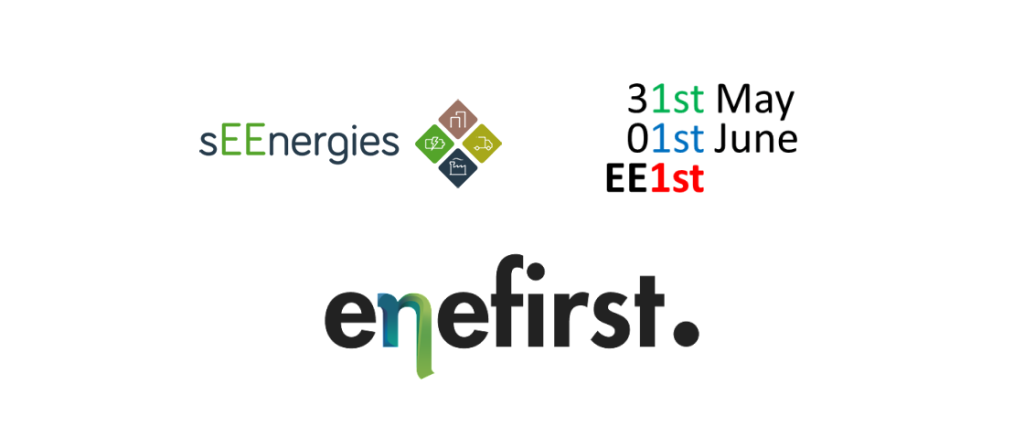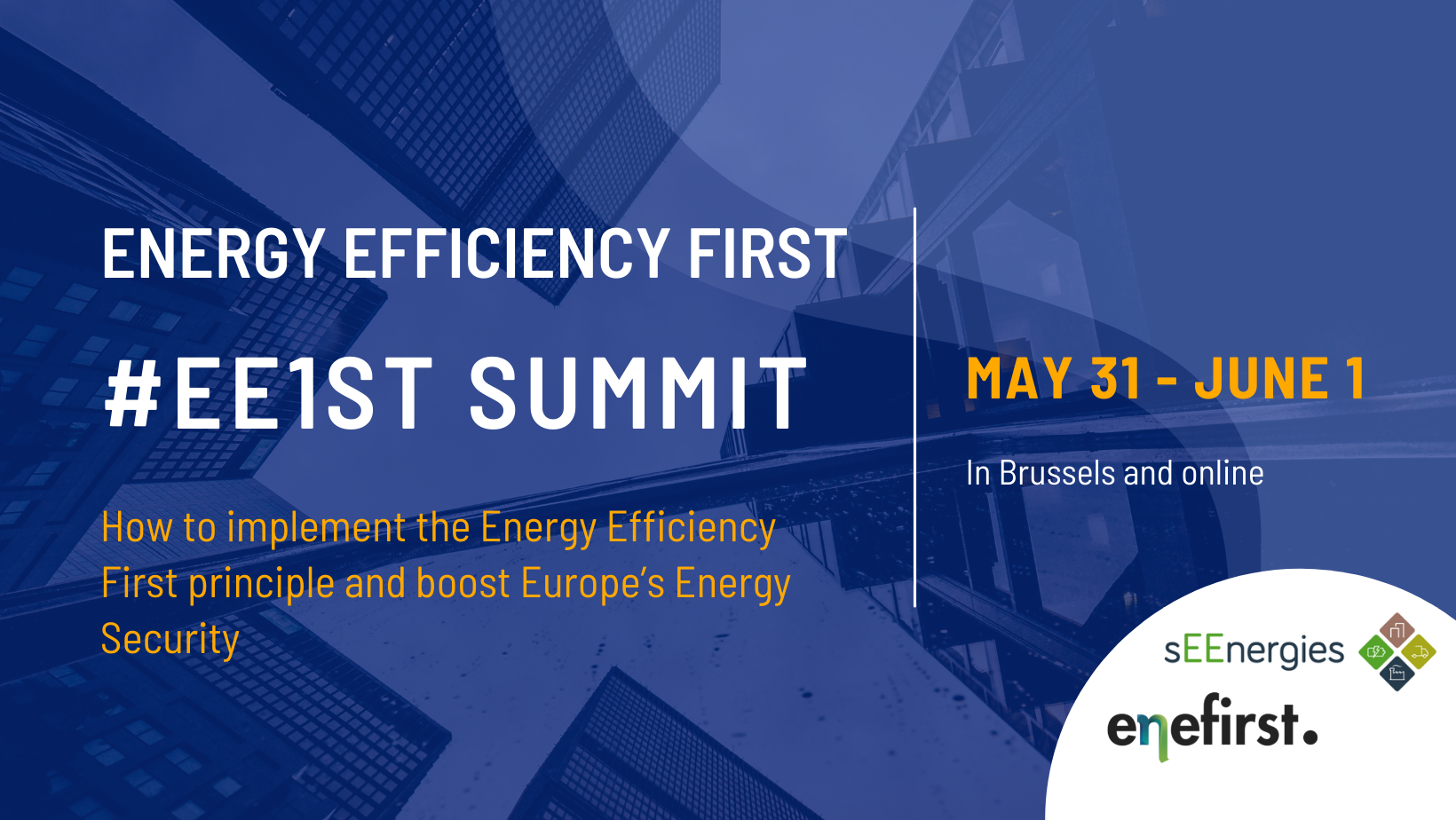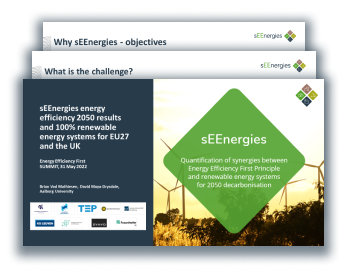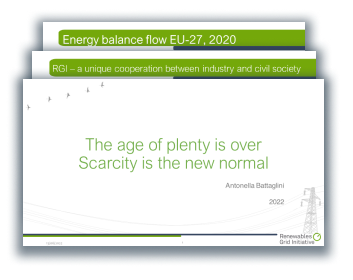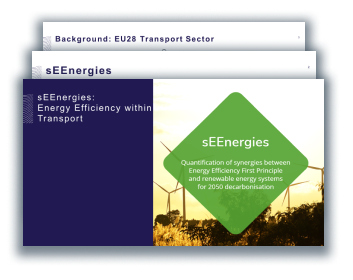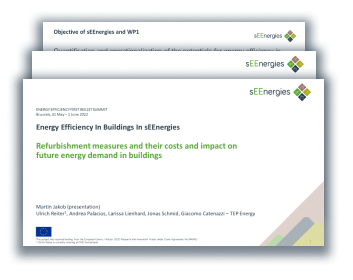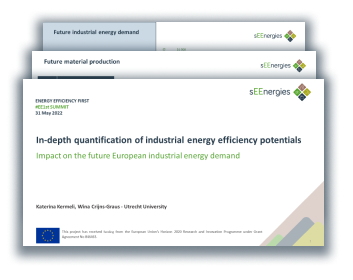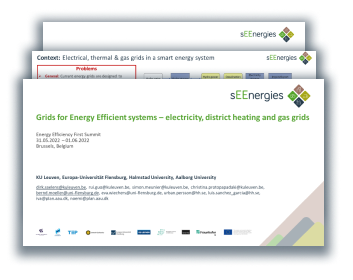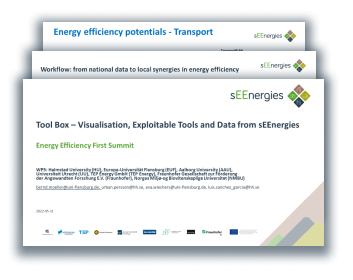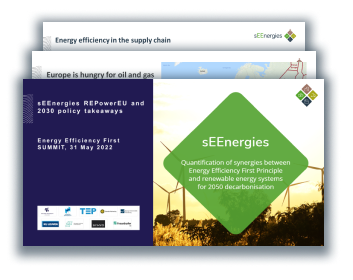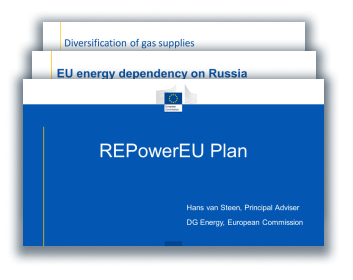Join us at the
Energy Efficiency First Summit: How to implement the Energy Efficiency First principle and boost Europe’s Energy Security
Conference jointly organised by the H2020 projects sEEnergies and ENEFIRST
Brussels | Tuesday 31 May and Wednesday 1 June 2022
Final deadline for registration for in-person attendance: 29 May
Watch part one of the #EE1ST Summit
Watch part two of the #EE1ST Summit
Download the presentation slides
Since its adoption in the frame of the EU Clean Energy for All Europeans package, the Energy Efficiency First (EE1st) principle has been recognised in national planning documents, such as the National Energy and Climate Plans (NEPC), to some extent. EE1st is a decision principle to prioritise investments in energy efficiency and demand-side resources whenever these options are more cost-effective than investments in energy supply from a societal perspective in meeting given policy objectives.
Implementing EE1st means in practice:
To systematically consider energy efficiency and other demand-side resources among the possible options when comparing, planning, or deciding on investments.
To ensure that the energy efficiency and demand-side resources are assessed and valued on a fair basis compared to supply-side investments (or other investment types).
To prioritize the choice of energy efficiency and demand-side resources when relevant, based on the assessment in the previous steps.
EE1st is not yet implemented on a systematic basis in energy policymaking, planning, and investment. The European Commission published in September 2021 its Recommendation and guidelines to support the broader implementation of EE1st.
This conference will illustrate and discuss in practical terms how the EE1st principle can help get the most out of energy efficiency and other demand-side resources to achieve a sustainable and resilient energy system in the EU. Which became even more critical in the current energy crisis.
The two days will combine the latest findings of the sEEnergies and ENEFIRST projects, together with roundtables with experts and stakeholders.
The first day will focus on innovative methods and new results about energy efficiency potentials in all end-use sectors and from an energy system perspective, as this is the basis and first step in implementing EE1st by making it possible to consider on a systematic basis the available demand-side resources.
The second day will focus on the integration of the EE1st principle in the policies for buildings and their energy supply. This will illustrate in practice the path from quantitative assessment to policy and decision making.
11:00
Welcome – registrations and light lunch
12:00
sEEnergies energy efficiency 2050 results and 100% renewable energy systems for EU27 and the UK
Presentation by Brian Vad Mathiesen, Professor, and David Maya-Drysdale, Assistant Professor, Aalborg University
Scarcity as a new normal towards 2050
Guest speaker Antonella Battaglini, CEO Renewables Grid Initiative
Q&A
13:00
Energy Efficiency Deep Dives
EE in Transport systems in sEEnergies
Morten Elle, Associate Professor, Aalborg University & Hamza Abid, Research Assistant, Aalborg University
EE in Buildings in sEEnergies
Martin Jakob, Executive partner, TEP Energy
EE in Industry in sEEnergies
Katerina Kermeli, Researcher, Utrecht University & Rasmus Magni Johannsen, PhD Fellow Aalborg University
Grids for Energy Efficient systems – electricity, district heating and gas grids
Dirk Saelens, Professor, KU Leuven & Bernd Möller, Professor, Europa-Universität Flensburg
Tool Box – Visualisation, Exploitable Tools and Data from sEEnergies
Bernd Möller, Professor, Europa-Universität Flensburg
Q&A
15:15
Coffee Break
16:00
REPowerEU 2030: EE1st Principle, Energy Security in the light of the Russia-Ukrainian War
sEEnergies REPowerEU and 2030 policy takeaways – Presented by Brian Vad Mathiesen
16:30 – 18:00
REPowerEU – the EU Commission answer to energy security in Europe
Guest speaker presented by Hans Van Steen, Principal Adviser, EU DG Energy
Round table: Is EU on track for the harvesting energy efficiency first potentials in REPowerEU?
Guest speaker presented by Hans Van Steen, Principal Adviser, EU DG Energy
- Hans Van Steen, Principal Adviser, EU DG Energy
- Michaela Holl, Senior associate, Agora Energiewende
- Jeppe Juul, Vice President, Transport & Environment.
- Wolfgang Eichhammer, Head Competence Centre Energy Policy and Energy Markets at Fraunhofer ISI
- Eline Blanchard, Senior Policy & Project Officer, EFIEES – European Federation of Intelligent Energy Efficiency Services
- Brian Vad Mathiesen, Professor, Aalborg University
Wrap-up and conclusions
